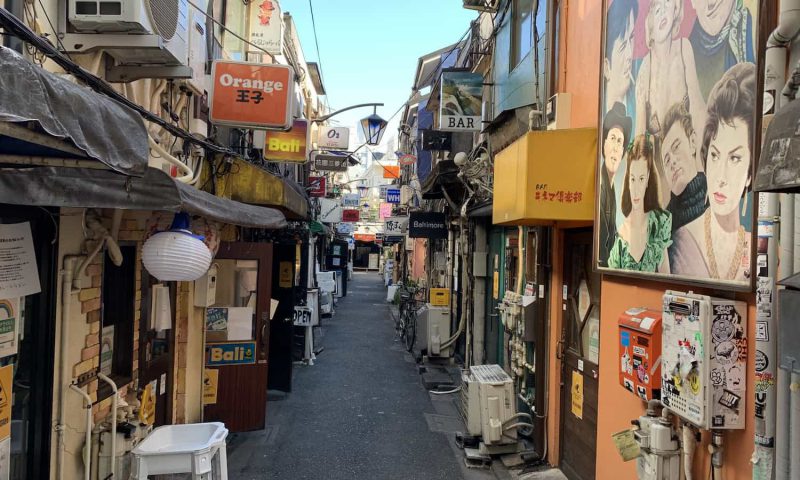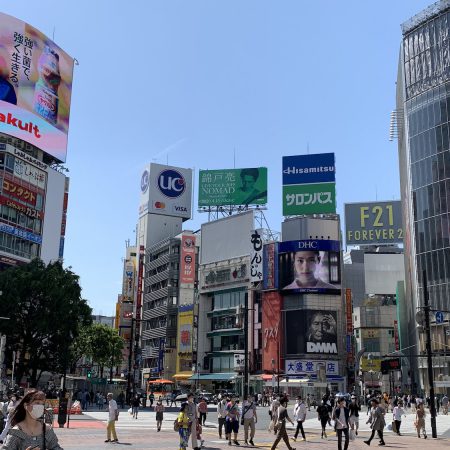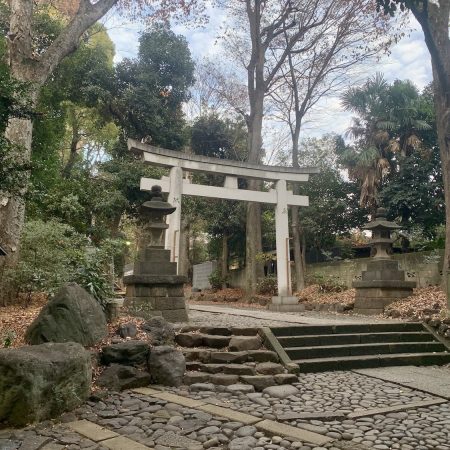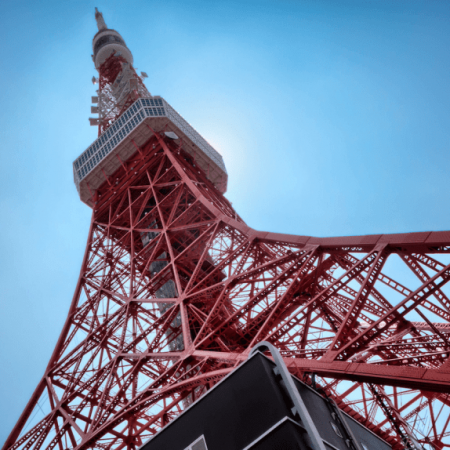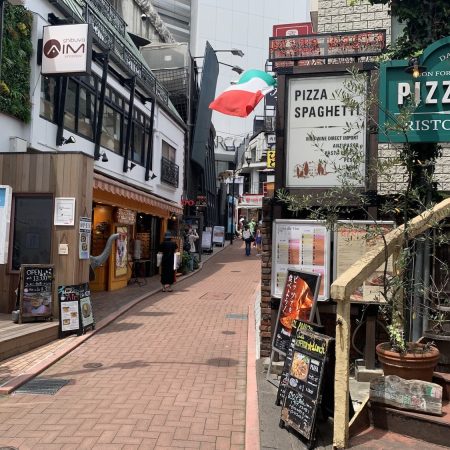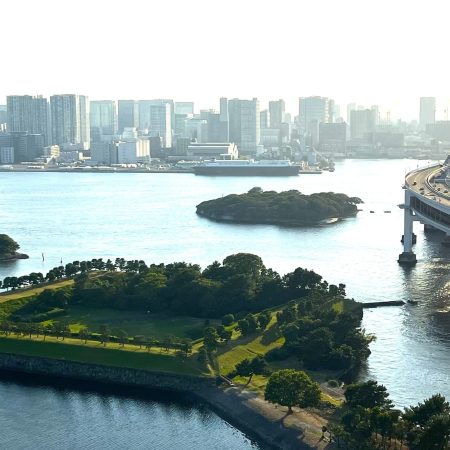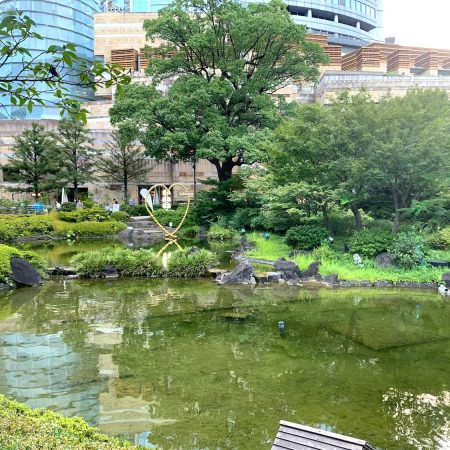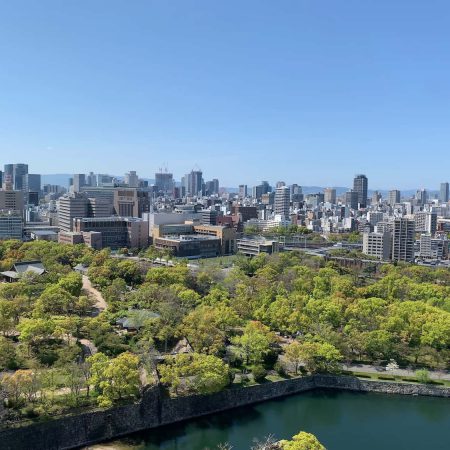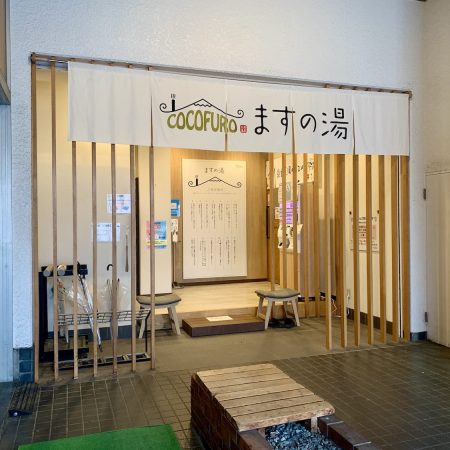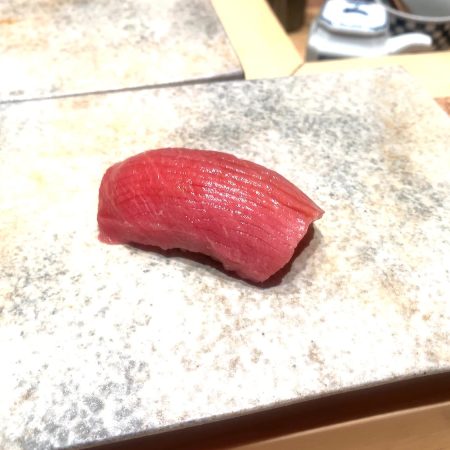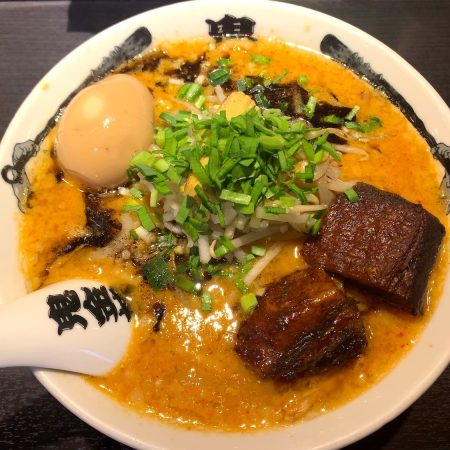Discovering Shinjuku’s nightlife can be a challenge, but fear not – we’ve got you covered. Golden Gai, nestled in a dimly lit corner of Shinjuku, is a captivating collection of quirky bars along narrow alleyways. Frequented by celebrities, artists, and writers, this charmingly scruffy district offers a nightly adventure into the unknown. In contrast to the neon-lit Shinjuku, Golden Gai focuses on cocktails, distinguishing itself from the nearby Omoide Yokocho, also known as Piss Alley, famous for its yakitori. Omoide Yokocho, a narrow alley bustling with locals and tourists, offers a lively atmosphere with its small restaurants and bars serving yakitori and other Japanese delights. Although once known as “Piss Alley” due to a lack of public restrooms, this name is rarely used today. Both Golden Gai and Omoide Yokocho are sought-after destinations in Shinjuku, attracting visitors with their unique atmosphere and delectable food and drinks.
Shinjuku Golden Gai (新宿ゴールデン街)
Shinjuku Golden Gai is a historic and iconic nightlife hub with six narrow alleys hosting over 280 unique drinking establishments. Originally a black market and red-light district in the post-war era, it attracted creatives in the 1950s and has since become a cultural and architectural heritage. Despite 1980s redevelopment attempts, protests by bar owners and patrons preserved its authenticity. The area, visited by celebrities like Quentin Tarantino and Lady Gaga, is not just for tourists but represents Japanese culture’s values of diversity, individuality, and community. It offers an authentic and intimate nightlife experience, celebrating Tokyo’s past and present creativity.
Omoide Yokocho (思い出横丁)
Omoide Yokocho, located at the west exit of Shinjuku Station in Tokyo, captures the essence of post-war Japan. Starting as a barren land after World War II, it transformed into Lucky Street, a black market selling goods partitioned by wooden boards. The area thrived with yakitori cabarets in the 1950s, offering grilled chicken and shochu in the company of hostesses. Today, Omoide Yokocho boasts around 60 food and beverage establishments, preserving post-war cultural heritage and serving as a vibrant destination for tourists and locals alike. Visitors can enjoy reasonably-priced drinks and cuisine, creating a unique and unforgettable experience that celebrates the enduring legacy of post-war Japan.

